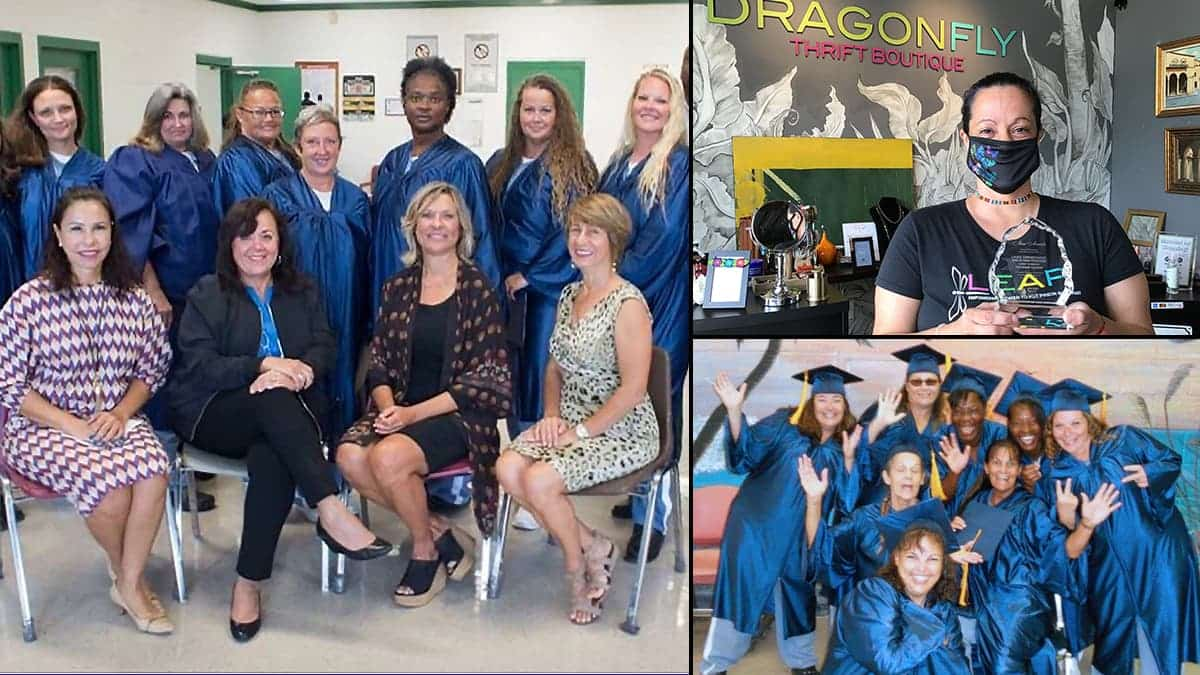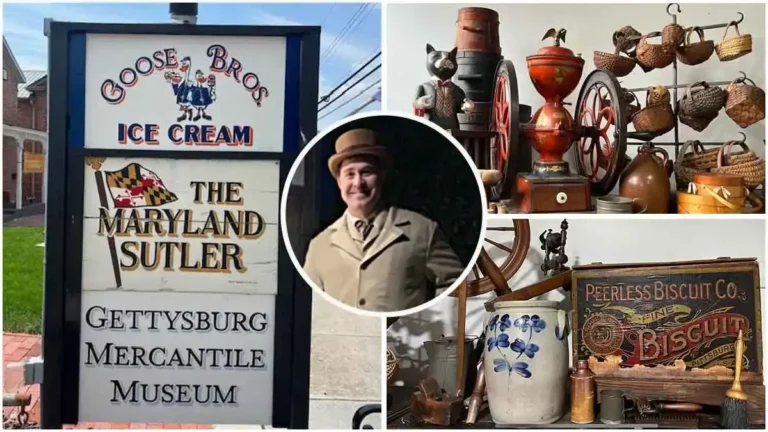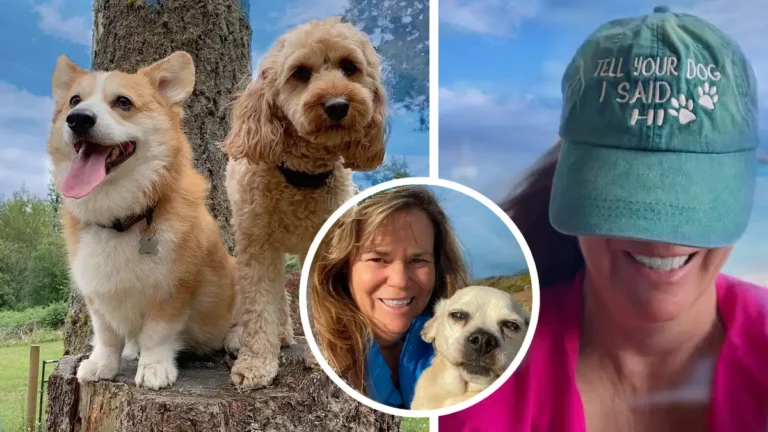At Patriot Software, we’re committed to providing accounting software and payroll that lets small business owners keep their time and money for what they love: running their business!
Our #PatriotSpotlight customer success stories celebrate and inspire U.S. small business owners across the country. For the November small business spotlight, we spoke with Gemma Garcia, co-founder of Ladies Empowerment and Action Program (LEAP).
LEAP is a Miami, Florida nonprofit founded in 2009 by Gemma Garcia, Patricia Glover, and Norel Ruiz. LEAP’s mission is to provide incarcerated women with the education and support they need to successfully re-enter society. By providing programs, employment, and housing, LEAP has made great strides to empower and educate women—and the community around them.
Can you tell me a little bit about your organization?
Ladies Empowerment and Action Program, better known as LEAP, is 11.5 years old. At the moment, we have a very holistic approach, which we didn’t have when we started. When we started LEAP, it was just an in-prison program, but now we’ve expanded to cover employment and housing.
We start with the in-prison program, which has three curriculums:
- Entrepreneurship: Teaching the ladies how to start their own business, because it’s very difficult for any ex-offender coming out of prison to obtain employment, and there’s high recidivism since there’s no support when you leave prison.
- Employment: This curriculum teaches them how to be good employees. The reality is that, even though a number have started their own businesses, they seek employment because they need money to live on.
- Life skills: Teaching the ladies how to increase their self-esteem, deal with past trauma, and overcome substance abuse.
Almost three years ago, we started a thrift store by the name of Dragonfly Thrift. Once released, the ladies can find employment at the store. The idea of starting the business was to offer employment to the ladies who stay in Miami, use the proceeds from the store to help support our in-prison program, and help us to do advocacy work. I can tell you that everyone who walks into the store will know about LEAP and what we do because all the employees—including our manager—are LEAP graduates.
Having a job upon leaving prison gives the LEAP graduates great confidence. Most of them use it as a stepping stone. After three to six months, they start looking for another job. It is always better to look for another job if you already have one.
A year ago, we started a transitional home to offer housing for the women who stay in Miami. In Miami-Dade, we don’t know of any other transitional homes for women coming out of prison except for homeless shelters.
As a co-founder, I always try to educate people because I have been blessed to have been born into a great family without any need in terms of hunger or housing. I’ve been very blessed with a great education, and in many ways up to 11 years ago, I was living in a bubble.
We tend to stay in our circle and know very little about many of the needs that exist in our society. Doing this work has completely changed me as a person. I am so much more in touch with the plight of others. It has honestly made me more understanding, less judgmental, more compassionate, and more giving. The ladies always say to me, “It’s great that you’ve done this,” and I always say to them “Thank you—you have changed me as a human being, and for that I am thankful.”
There is so much advocacy that needs to be done. We work really hard in trying to get employers in our area to be open and offer employment to these women. But, there’s such a stigma associated with people who have been in prison. The ladies are in prison because they have committed an offense. But, there is no reason to continue punishing them after they’ve been released—they’ve already served their sentence. Give them the opportunity to move forward without that stigma, without that label. They have to, unfortunately, carry that for the rest of their lives.
What made you decide to start LEAP?
Three of us started LEAP. I grew up in New York and moved to Florida in 2005. Shortly after moving here, I became very involved in my local church, and I was invited to be part of bringing to the women’s prison a Christian retreat designed to develop a sense of Christian fellowship. I volunteered for a number of these retreats.
What touched me while doing that work was that many women there were victims of the circumstances that they were born in. What is to say that we’re born into good families and someone else is not? And also, the fact that many of the women were coming out but only returning after six months or a year.
So we, the other two co-founders and myself, said let’s do something. Then we read an article about a program that had been started in Texas for men focusing on entrepreneurship. Education is a very big thing in my family, so when I read that, I thought—this makes sense. Teach them how to start their own business so they don’t have to rely on anyone.
One of the other co-founders—Patricia Glover—had worked in the prison system. That was a great help for us because they knew her. And at the beginning, they were saying that they didn’t know if this was going to work. But because they knew and trusted her, we got an in to the prison system. Plus, we were lucky to be able to do a partnership with Barry University. The professors were the ones who started offering the entrepreneurship program.

What’s the best part of running your organization?
In the beginning, LEAP was run by the co-founders, but you can’t sustain an organization run by volunteers. About four or five years ago, being executive director got to be too much for me. So now, our executive director is Mahlia Linquist, who has done an incredible job taking the organization to the next level. She has taken the organization to a sustainable level, expanding the program to open the store and transitional house. But as the board treasurer, I’m still very involved.
The most rewarding thing, I think for all of us, is to be able to see that change is possible and to be able to see so many of these ladies really blossom and move on with their lives in such a rewarding way to themselves.
We can provide the support, but the ladies have to do the work. Especially as a woman, when we see that we have been able to empower other women and see their growth and the positive things happening in their lives, that’s what gives us the gasoline to continue with this work.
Thank God I still have the fire in my belly, still believe in what we do, and put a lot of time into it—because it is making a difference. One of my mantras is from Gandhi: “Be the change you want to see in the world.” If we’re not part of that change, then nothing will change. But luckily, we have a lot of good human beings in this world who are making a difference.

What are some of your biggest challenges?
One of our biggest challenges has been—and continues to be—raising funds to sustain the organization. As with many nonprofits, January starts off, and you say whoa, where is a lot of this money going to come from?
We do not get a penny from the state of Florida, but we do get grants. One of the things we’ve been trying to do is raise the contributions from individuals. Little by little, we’re trying to do a lot of advocacy work and get people to really support us. It’s an ongoing challenge we have throughout the year.
The other challenge is dealing with the Florida correctional system. You would think they would welcome us with open arms—we’re doing this for free and reducing recidivism—but it’s very hard, and we’ve faced a lot of hurdles. So, we continue to work with them all the time to not only maintain the program, but to also make it better.
The next challenge is the community as a whole—the preconceived notions and labels that people have. Again, that’s why we try to do a lot of advocacy work and make them aware of what we do, and the great need for the work we do. If you are visiting the thrift store for the first time, you won’t walk out without knowing what we do. The workers will share their stories and tell you what our program is all about.
How does Patriot’s Full Service Payroll help you run your organization?
Well, it’s made it easier in terms of manpower, because not only do you do the payroll, but you do the tax filing for us. And sometimes we hire consultants, so I use you to file the 1099s at the end of the year. So, it’s made it easier, and it’s also saved us money from having to pay perhaps someone to do that. Even if we were to do it ourselves, it’s much easier to use you to do that for us than doing it ourselves.
And I have to say—any time I’ve had an issue or question, everyone I’ve contacted at Patriot has been extremely courteous and helpful in resolving the situation!
When it comes to LEAP, what are you most proud of?
I’m most proud of the fact that we’ve been able to touch and change so many women’s lives.
This not only helps them, but it helps their children—it helps their families. So, this has not only had an effect on their lives, but on many other lives. For many of them, they’re breaking the cycle that they’ve been in for years.
I always tell the ladies, when we are empowered, there’s nothing that will stop you from getting where you want to go. Nothing anyone can say or do that can stop you. The most important word in our name is “Empowerment.” And in many ways, that comes from education because knowledge is power.
When you’re not busy working, what do you like to do in your spare time?
When I’m not busy working, I love to exercise, spend time with family and friends, cook, travel, and read.
What words of advice do you have for others hoping to start their own nonprofit or business?
My best advice is, number one: Be persistent and don’t give up. When you start a business or nonprofit, you’re going to encounter many hurdles at the beginning. But by being persistent, you will be able to do it.
There are going to be days you want to stop—I assure you there were days that I was ready to say “That’s it” when we started LEAP due to all the hurdles. But then for us, that would be the day I got a phone call from one of the graduates, telling me that they were doing so well. And I would say to myself, “I have to do this, I cannot give up.” So be persistent.
The second thing is networking. It’s such an important tool that you have because you never know who you’re going to talk to who’s going to say, “Hey, I can help you or connect you to someone.”
That’s how we were able to grow LEAP, because we had such a network between the three of us. We started spreading the word. The connection with Barry University was through one of our friends who said “Hey, we have a great relationship with them, let me introduce you because they might be interested.” And then Barry University loved what we were trying to do. It would’ve never happened without that person.
So, persistence and networking are two very important things to start a nonprofit or new business.
Connect with LEAP:
This customer received a gift card as a thank you for sharing their story and unbiased feedback.



